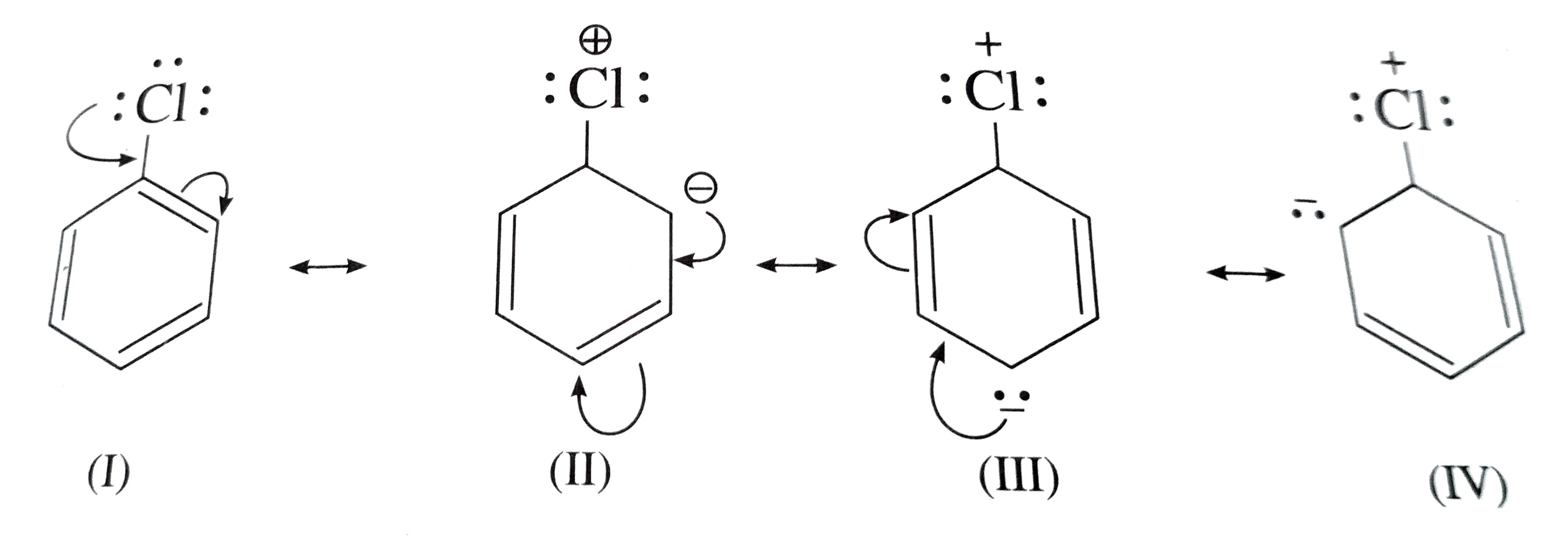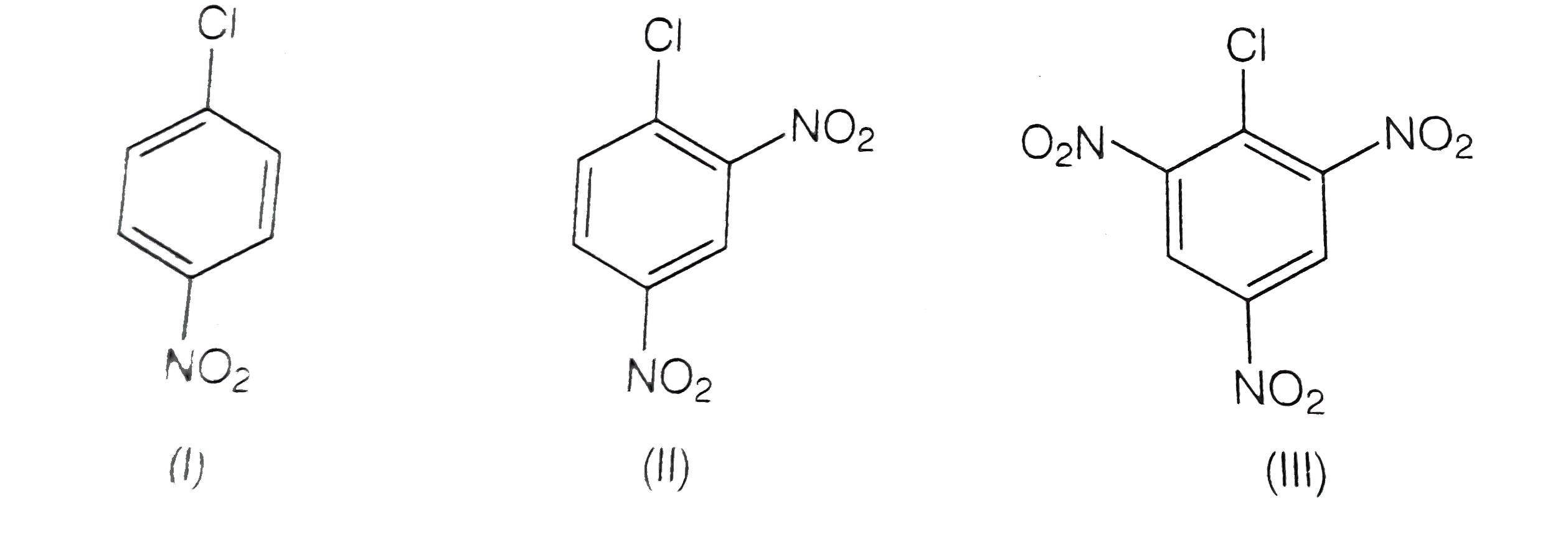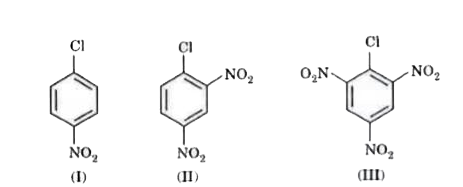Explain why are aryl halides extremely less reactive towards nucleophilic substitution reactions?
Aryl halides are extremely less reactive towards nucleo-philic substitution reaction due to the following reasons :
(1) Reasonance effect : In haloarenes, the electron pairs on halogen atom are in conjugation with π-electrons of the benzene ring. The delocalization of these electrons C−Cl bond acquires partial double bond character.

Due to partial double bond character of C−Cl bond in aryl halides, the bond cleavage in haloarene is difficult and are less reactive towards nucleophilic substitution.
(2) Different hybridization state of carbon atom in C-X bond : In aryl halides, the carbon of C-X bond is sp2 hybridized with more s-character and shorter bond length of 169 pm which requires more energy to break C-X bond. It is difficult to break a shorter bond than a longer bond, therefore, aryl halides are less reactive towards nucleophilic substitution reaction.
(3) Instabillity of phenyl cation : In aryl halides, the phenyl cation formed due to self ionisation will not be stabilized by resonance. Thus cations are not formed and hence aryl halides do not undergo nucleophilic substitution reaction easily.
(4) As any halides are electron rich molecules due to the presence of π− bond, they repel electron rich nucleophilic. attack. Hence, aryl halides are less reactive toward nucleophilic substitution reactions.
Similar Questions
Knowledge Check
Aryl halides are less reactive towards nucleophilic substitution reaction as compared to alyl halides due to
Aresonance effectBinstability of PHEnyl cationCrepulsionDAll of the aboveAryl halides are less reactive towards nucleophilic substitution because
ALess stable carbonium ionBDue to largeC−CI bond energyCInductive effectDResonance stabilization and sp2-hybridisation of C attached to halide .Assertion (A): A racemic mixture is represented by fixing dl or (±) before the name.
Reason (R) : Aryl halides are extremely reactive towards nucleophilic substitutions.ABoth Assertion (A) and Resort (R) are correct statements, quid Reason (R) is the correct explanation of the Assertion (A).BBoth Assertion (A) and Reason (R) are correct statements, brit Reason (R) is not the correct explanation of the Assertion (A).CAssertion (A) is correct, but Reason (R) is incorrect statement.DAssertion (A) is incorrect, but Renson (R) is correct statement.
Why are aryl halides less reactive towards nucleophilic substitution reactions than alkyl halides? How can we enhance the reactivity of aryl halides?
View SolutionAryl halides are extremely less reactive towards nucleophilic substitution. Predict and explain the order of reactivity of the following compounds towards nucleophilic substitution.

View SolutionAryl halides are extermely less reactive towards nucleophilic substitution. Predictand explain the order of reactivity of the compounds towards nucleophilic substitution.

View SolutionAryl halides are extremely less reactive towards nucleophilie substitution. Predict and explain the order of reactivity of the following compounds towards nucleophilic substitution:

View SolutionAryl halides are extremely less reactive towards nucleophilie substitution. Predict and explain the order of reactivity of the following compounds towards nucleophilic substitution:

View Solution
